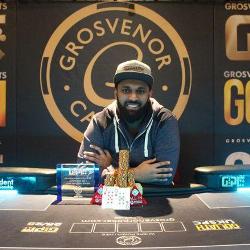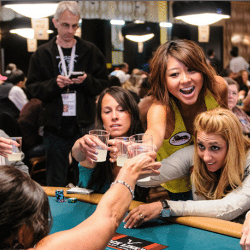Should Poker Events Enact Random Drug Testing?

Alex Dreyfus has changed the state of poker forever with the establishment of the Global Poker League, which solidifies poker as a legitimate sport in which a high level of skill is required in order to succeed. Undoubtably, this new perception of poker will help shed a new positive light on the game, but it also means that the players’ behavior will come under a greater level of scrutiny. One of the most controversial issues in this regard is whether or not participants should undergo drug tests, and many argue that poker can never be a sport unless a testing policy is instituted.
Poker and Illegal Drug Use
While drug use is by no means something that all professional poker players indulge in, recreational drug use, on the other hand, is rampant in the world of poker. Some poker players use marijuana prior to tournaments in order to remain calm and cool at the table. Others use amphetamines and other stimulants to remain more alert and focussed when tournaments grind on for hours at a time.
The Impact of Drug Use on Poker
Before the Global Poker League sought to turn poker into a sport, drug use was frowned upon but considered by some to be just a less savoury aspect of tournament poker. With the changing face of the game, however, many players are now concerned that allowing drug use could undermine the integrity of the poker. A player who is using recreational drugs to gain an advantage at the table isn’t relying on his or her skill. Scandals could erupt if a winning team was found to have used drugs to beat opponents who did not, and such scandals could put the future of competitive poker as a sport in jeopardy. Controversy over drug use could also scare away prospective sponsors that do not want their brands associated with cheating or recreational drug use.
The Way Forward
In order for professional poker to combat recreational drug use among players, formal rules would need to be drawn up, and the Global Poker League would have to draw up guidelines regarding drug testing, stating when and how players might be tested. These rules would also need to be accepted by other major tournaments, like the World Poker Tour (WPT) and the World Series of Poker (WSOP), in order to have an impact.
Any set of guidelines regarding recreational drug use would need to clearly define what type of substances are banned, and have clauses to deal with players who may be prescribed amphetamines or medicinal marijuana by a physician. There would also need to be a discussion about whether non-illegal substances like energy drinks and caffeine tablets give players any type of unfair advantage.
Along with clearly defined definitions of substance abuse, drug testing policies and recreation drug use, bans would need to clearly outline what the consequences for non-compliance are. Would players simply be removed from a tournament? Would repeat offenders be banned from competitive play? How would a situation where a player was found to be using drugs after winning a championship be handled?
Clearly, a lot of administrative work, negotiations and conversations will need to take place before the recreational drug use topic can be dealt with in a practical and meaningful way, but many argue that it will be worth it to make sure that competitive poker has its chance to become a true sport.
Is Poker Different?
While Alex Dreyfus’ Global Poker League may force a re-think of the poker industry, other anlaysts are arguing that cerain exceptions should be made in the case of poker. One such argument goes that it is doubtful whether the illegal substances used by players actually gives them any particular edge over others who lead healthier lifestyle, and refrain from alcohol or drug use. While ‘clean’ players may have clearer heads, and be better able to make better decisions, one issue that isn’t being debated, though, is the ability of drugs such as amphetamines, cocaine, and Adderall to help keep players stay awake and remain alert through long poker sessions.
Nevertheless, the nay camp believe it would be wholly unreasonable to test for these types of “commonplace” drugs, especially as poker players are an independent bunch who pay for all their own tournament fees and expenses, and value their own liberty and freedom above all else. According to the argument, forcing drug tests upon these players would likely result in them abandoning tournaments in favor of cash games, and as poker news writer Alex Weldon tweeted recently:
“GPL may grow, but until it pays more than players can win normally, they’ll quit rather than accept drug tests.”










